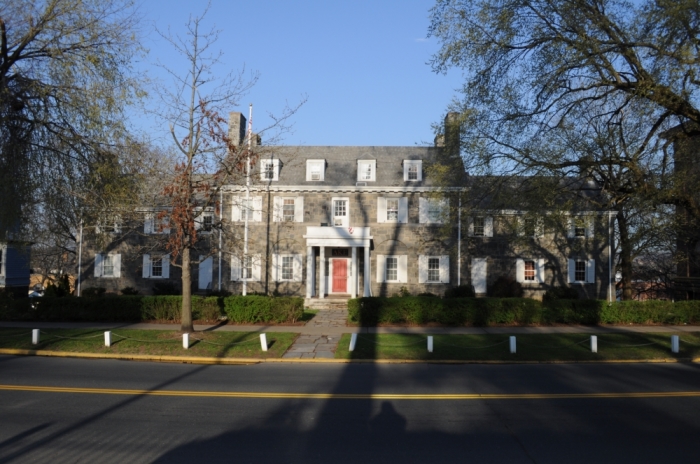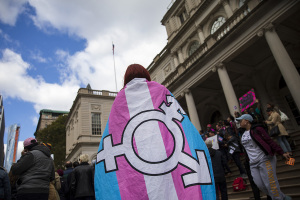LGBTTQQFAGPBDSM? Housing for 15 Alternative Sexualities Is OK, but Men-Only Fraternities Are Not, Wesleyan University Says

Campus housing specifically for 15 alternative sexualities, including sadomasochists, is acceptable, but fraternities that just allow men are not, at Wesleyan University.
Wesleyan University housing has an option for students who want to live with others identifying with one of 15 categories — LGBTTQQFAGPBDSM. The university's inclusiveness excludes, however, male-only fraternities.
Delta Kappa Epsilon sued Wesleyan University after the liberal arts college ordered all of its fraternities to admit women, charging sexual discrimination and false and deceptive practices.
Wesleyan, a Connecticut college, was founded by the Methodist Episcopal Church and named after 18th century evangelical theologian John Wesley, but is now secular.
According to the suit, Wesleyan offers a range of housing options for it undergraduates (who are required to reside on campus), including, Women of Color House, Womanist House, Malcolm X House, Lighthouse (for "open-minded" Christians), and houses specifically for Latinos and Asians.
One of those housing options is called "Open House," which is for LGBTTQQFAGPBDSM individuals, according to Wesleyan's Office of Residential Life. The 15 letters stand for lesbian, gay, bisexual, transgender, transsexual, queer, questioning, flexual, asexual, genderf***, polyamourous, bondage/disciple, dominance/submission, and sadism/masochism, in that order.
The suit points out that male-only and female-only housing is available in the school's residence halls. The Wesleyan website also touts the school's "diversity of housing options."
The suit complains that the school is not fulfilling its stated goals of diversity and inclusiveness, and is violating its opposition to sex discrimination, by eliminating male-only fraternities as a housing option.
The move to make fraternities accept women was in response to concerns about campus rape. A group of faculty and students argued last Spring that frat parties encourage sexual assault by men against women. The solution was to place more women in fraternities. In an open letter the group called for requiring the school's three all-male fraternities to "drastically reform" and admit women.
The letter stated: "Because fraternities are male-exclusive and the possessors of some of our campus' largest party spaces, they explicitly and implicitly cultivate a gender-based power dynamic that privileges men, the hosts, over women, who are among the guests. This power dynamic engenders sexual assault because women are institutionally encouraged to 'repay' men for their hospitality, often with sex, and men are institutionally provided with a control over their guests, especially women."
Even though fraternities are thought to be a dangerous place for women, the letter states that placing women in fraternities will make them safer by eliminating "the gender-based power dynamics by which sexual assault is promoted within fraternities."
In an interview with The Washington Post, Terence Durkin, president of the Wesleyan DKE chapter, said that DKE was given three years to make the change, and they were prepared to do so, but Wesleyan suddenly moved the timetable to five months. Wesleyan countered, in an emailed statement to The Washington Post, that DKE had not shown sufficient progress in making the necessary changes.
In an op-ed for First Things, Carl R. Trueman, Paul Woolley professor of church history at Westminster Theological Seminary, argued that Wesleyan's expansion of LGBT to 15 letters is emblematic of the current direction of liberal moralism.
"This endless expansion of sexual categories is a necessary consequence of what is now the fundamental tenet of modern sexual politics, and perhaps a key element of modern politics in general: That a person's attitude to sex is the primary criterion for assessing their moral standing in the public square. If you say that sex has intrinsic moral significance, then you set it within a larger moral framework and set limits to the legitimate use of sex. In doing so, you declare certain sexual acts illegitimate, something which is now considered hate speech. This constant coining of new categories of sexual identity serves both to demonstrate this and to facilitate its policing," he wrote.





























